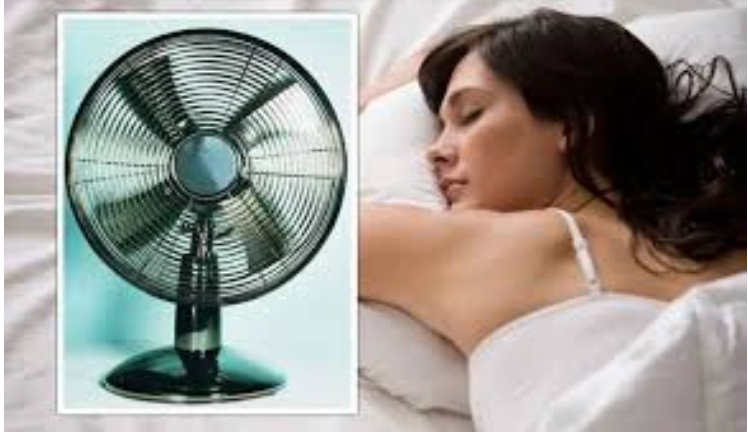Sleep is the common body posture (such as lying down with closed eyes), the occurrence of dreams, and changes in brain activity and physiological functioning that many living things experience naturally on a regular basis.
Sleep is made up of cycles of non-REM sleep and REM sleep, and is typically regarded as essential to the restoration and recovery of many bodily functions.
According to “Healthline”, the following reasons are why we should be careful when using fans overnight:
- Sinus Affection
Additionally, the continuous flow of air has the potential to dry out your nasal passages, which may have an impact on your sinuses.
Your body may attempt to make up for the dryness by creating too much mucus if it is especially severe. You then have a higher risk of obstruction, stuffiness, and sinus headaches.
- Can Result In Migraines And Headaches
Your propensity to headaches and migraines is yet another unfavourable side effect of leaving your fan on all night, especially when it gets to the point where it blasts dry air.
Some research suggests that exposure to cold temperatures stimulates the trigeminal nerve, which causes the blood vessels in your brain to tighten and results in a headache.
According to other studies, fans do not directly cause headaches or migraines; but, if the air in the room remains still, you could develop allergies that could result in headaches or migraines.
- Fans Have A Habit Of Gathering Dust From Miles Away
They could be dangerous to those who have allergies or breathing issues if they aren’t cleaned frequently. On their blades, you can see the dust, and at night, the fans may be blowing dust-filled air into the room.
- Develops A Poor Habit
Don’t assume that addiction is limited to smoking. You may be unknowingly addicted to that habit if you can’t fall asleep without a fan.
The bad news is that it will be challenging to stop utilizing blowing fans when you’re sick if you can’t fall asleep without them.
You won’t be able to sleep in rooms without fans as a result, and you’ll probably experience most of the problems we’ve covered in this essay. Use your fan only when it is actually essential.
- Dry Skin
The frequent and intense blast of air from the fan may cause some skin sensitivities, especially in those with acne and other dry skin disorders like eczema.
When using the fan, adding moisturizers or creams can help.
- Respiratory Conditions
People who leave their fans on overnight typically get upper respiratory infection symptoms considerably more frequently than people who don’t.
Nasal congestion, scratchy or painful throat, shortness of breath, sinus pain, rhinitis, and even coughing are some of these symptoms.
Studies have shown that those who spend a lot of time in continuously cooled rooms with fans are more susceptible to rhinitis than those who use natural ventilation.
Additionally, nasal breathing, nasal discharge, and congestion symptoms were discovered to be widespread in those who utilize mechanical ventilation.
If these issues are not addressed, they may eventually result in serious respiratory issues.
It is advised to look for other methods than running the fan constantly in order to cool your body. Before going to bed, one can dress in looser clothing or even take a cold shower.
If your allergies and skin sensitivity are readily provoked, you should also clean your fan frequently.




